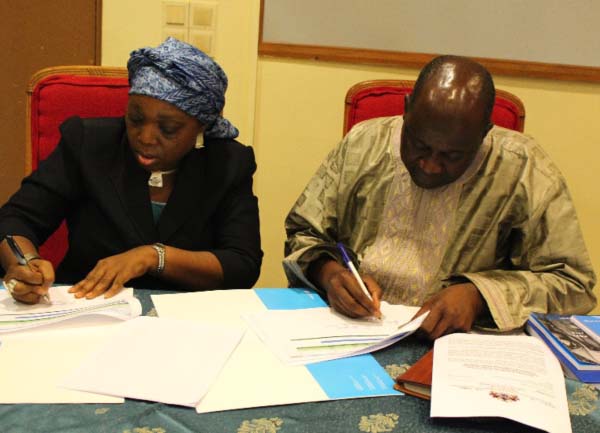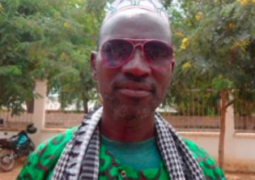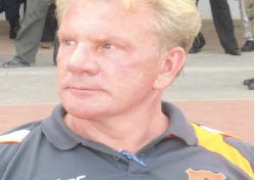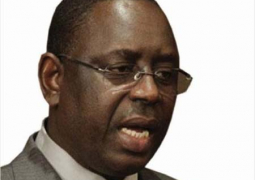
The
Secretary General and Head of the Civil Service, Dawda Fadera, and the UNICEF
Resident Representative, Sara Beysolow Nyanti, signed an MoU for the
implementation of the 2017 UNICEF work plan, valued at about $6m. The signing
ceremony was held at the office of the Secretary General at the Kairaba Beach
Hotel on Thursday 23rd February, 2017.
The
2017 work plan highlights the various intervention areas in UNICEF’s new
country programme, with a key focus on two programmatic streams: Child Survival
and Development (CSD), and Protection and Inclusion of Children (PIC).
These
will be propped up by various cross sectoral components, geared towards
ensuring the respect and fulfillment of the rights of all children in The
Gambia. The UNICEF work plan for 2017 marks the beginning of the agency’s new
five-year country programme, with interventions targeting children in all
regions of The Gambia.
It
is the result of a series of consultations with government, civil society
partners and sister UN agencies, to identify the key priorities for children
and women in The Gambia. The activities in the work plan will contribute to
efforts geared towards addressing the challenges and closing the gaps in
various sectors, including health, nutrition, education and protection, with
UNICEF providing significant financial and technical support.
The
UNICEF Resident Representative, Sara Beysolow Nyanti, expressed gratitude to
the government of The Gambia for the stamp of approval on the work plan, which
signals the commencement of work in the various intervention areas. She noted
that UNICEF is committed to reaching the last child in the last village of The
Gambia with the basic services needed for their survival and development.
Madam
Nyanti also spoke to the Secretary General about UNICEF’s response to the
humanitarian crisis during the political impasse in The Gambia. She cited the
need for the organization to work in the humanitarian context during that
period, something which was done through the Gambian Red Cross.
She
noted that although the work plan with government had not been signed, UNICEF
had to act as over 80% of those displaced and on the move were children and
women. She stressed that emergency situations require the organization to work
in its humanitarian mode, adding that Gambian Red Cross Society was able to
distribute lifesaving supplies and train responders due to the support of
UNICEF.
She
noted with appreciation key partnerships within the government such as those
with NaNA, Ministry of Health, Department Of Social Welfare, MoBSE, Ministry of
Interior, Ministry of Justice, Women’s Bureau and others; and used the
opportunity to renew UNICEF’s commitment to its mandate of supporting the
Government of The Gambia and civil society partners to ensure the effective
delivery of tangible results for children and women in the country.
The
Secretary General and Head of the Civil Service, Dawda Fadera, expressed
delight in signing the UNICEF 2017 work plan, noting that it is important for
work to continue in The Gambia.
He
thanked UNICEF for their partnership with the Government of The Gambia over the
past years, and told the UNICEF Representative that his doors are always open
for business. SG Fadera harped on government’s commitment to ensure that
children have access to quality services, and that their basic needs are met.
The
two heads of institutions exchanged signed copies of the 2017 work plan, and
shared their hopes for its successful implementation.




